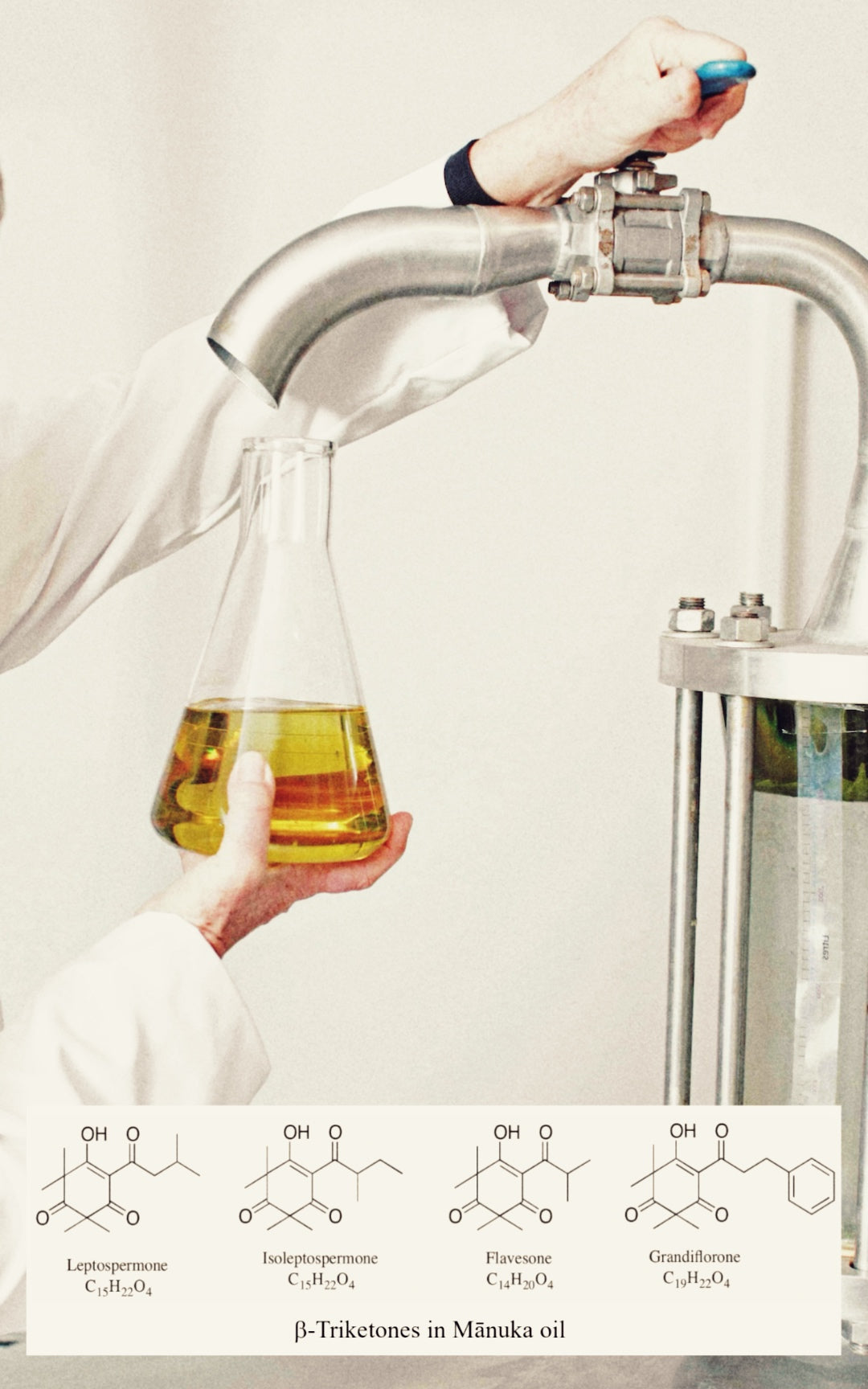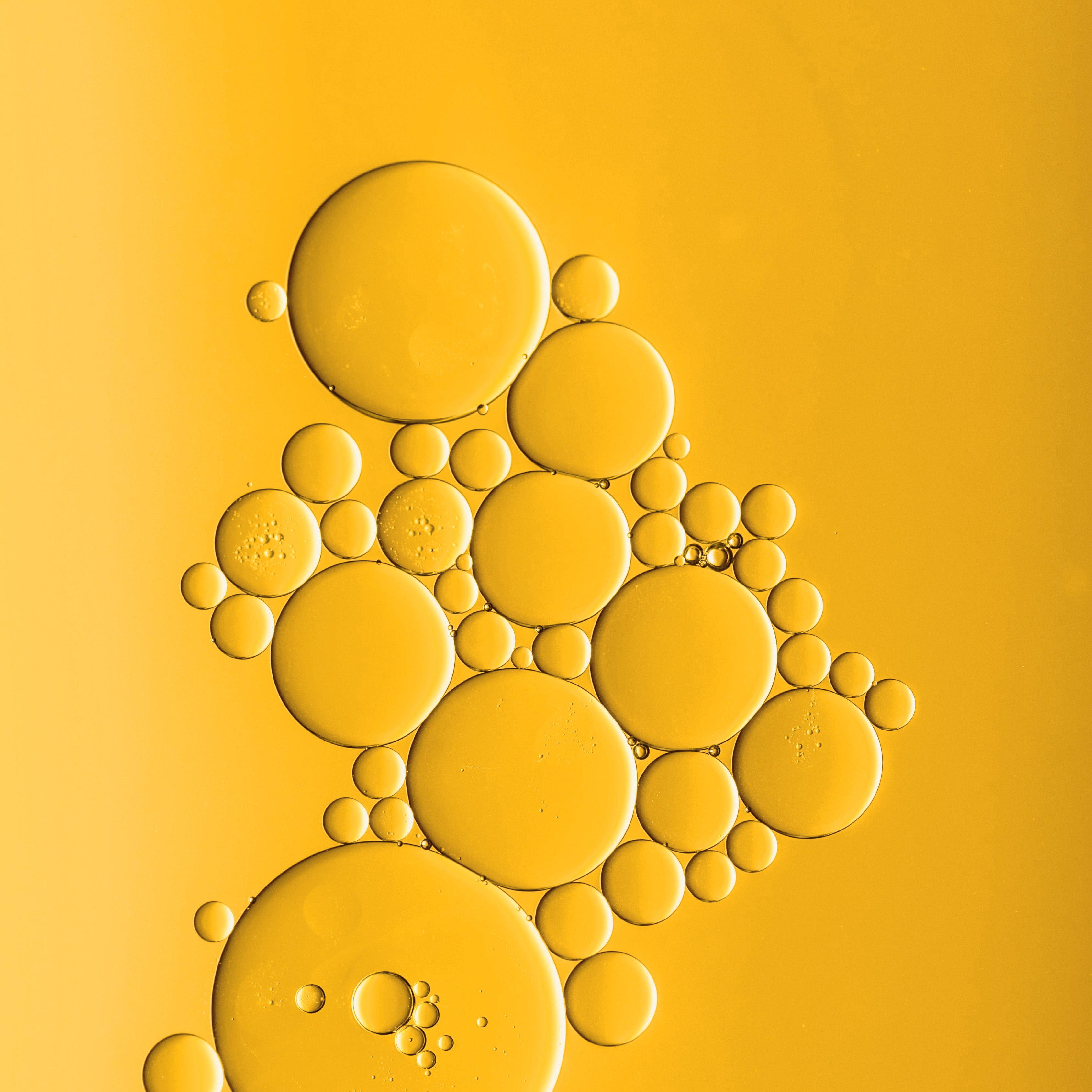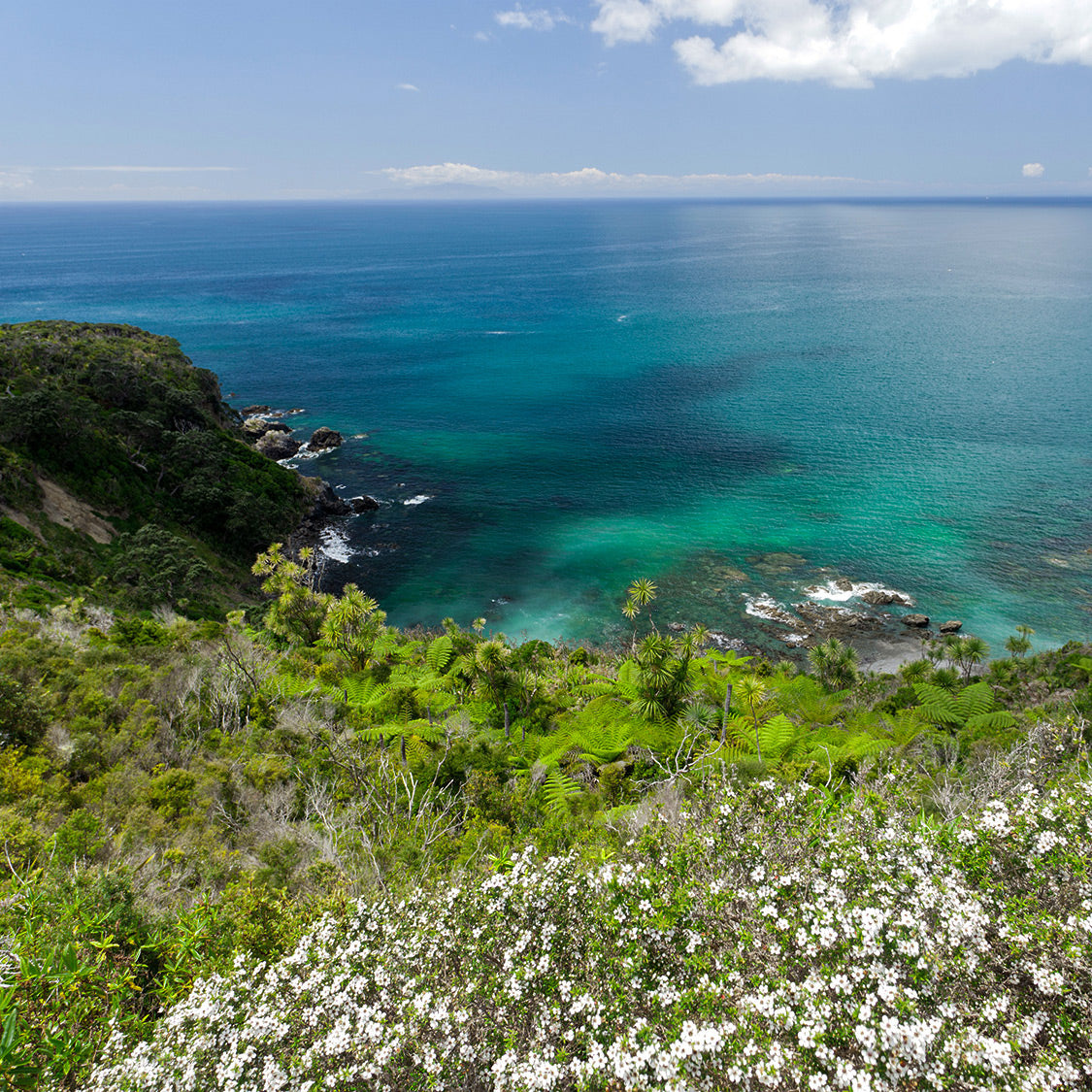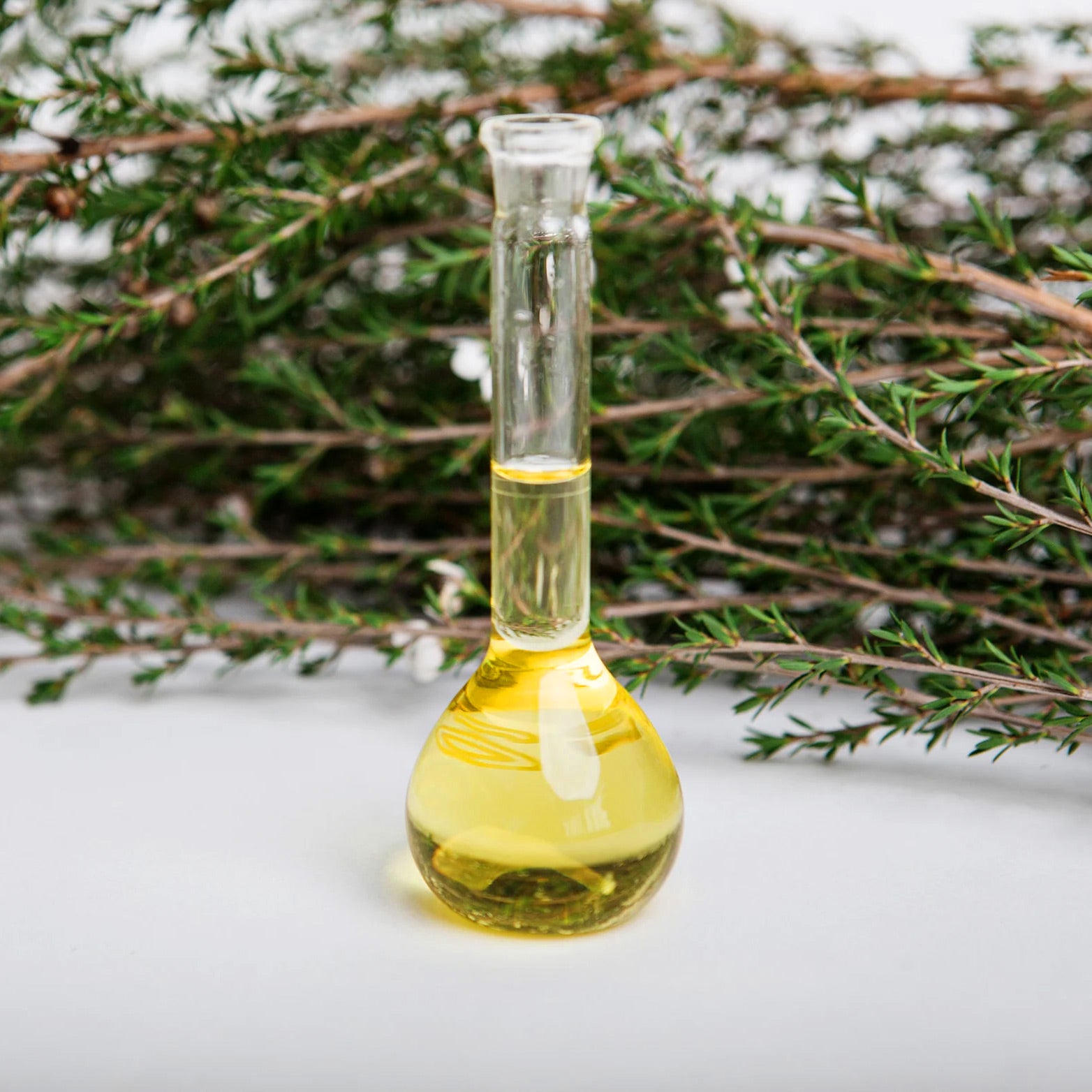KATOA means Mānuka
It’s the heart and soul of our brand.
We are the first beauty brand built entirely on Mānuka Oil.

Our MβTK 20+ Mānuka Oil
Katoa's Mānuka Oil is Scientifically proven to be high in β-triketones
In New Zealand, botanicals are exposed to some of the highest levels of UV radiation on the planet due to the ozone layer. To survive, these plants have developed their own defence mechanism by generating high levels of antioxidants. These antioxidants act as natural sunscreens, protecting the plants from harsh radiation, just as they benefit our skin.
The Mānuka plant is one of these plants, which is rich in β-triketones, enabling it to create this natural protection. β-triketones are powerful natural antimicrobial agents.
Flavesone, Leptospermone, Isoleptospermone & Grandiflorone are collectively known as Mānuka Oil ßeta-Triketones (MβTK). The higher the triketone level, the stronger the antimicrobial benefits.
KATOA MβTK 20+ Mānuka Oil is: β-triketone-rich, 100% pure and natural, safe and sustainable, broad-spectrum antimicrobial ingredient from the East Cape Region of New Zealand.
Discover Why Mānuka is the Latest in Extraordinary Super Ingredients
Mānuka Studies
New in vitro test results show that East Cape Mānuka Oil produces large amounts of collagen III in skin cells. Collagen III works with collagen I in the skin to help minimise fine lines and wrinkles, provide tensile strength and elasticity, and improve skin hydration levels. It also has an important role in skin repair. Click here to read the study.
Independent research shows that b-triketone-rich East Cape Manuka Oil, Leptospermum scoparium, has strong antiviral efficacy given the presence of many antiviral constituents including: b-triketones (flavesone, leptospermone, iso-leptospermone and grandiflorone), b-caryophyllene, selinene, aromadendrene, calamenene, spathulenol, cadinene, elemene and cubebene. Click here to read the complete study.
East Cape Mānuka Oil has over 80 bioactive constituents, including 20% or more natural b-triketones, mostly leptospermone, iso-leptospermone and flavesone. These actives are responsible for ECMO’s broad-spectrum antimicrobial properties (the ability to stop the growth and kill bacteria, fungi and viruses). Click here to read the complete article.
Mānuka Oil is highly effective against a wide range of bacteria that cause skin, soft tissue and other infections. Click here to read the full study.
Triketone rich East Cape Mānuka Oil helps maintain a balanced skin microbiome and clear skin by killing or reducing bacterial, fungal and viral growth on the skin that cause common infections such as acne, impetigo, cold sores and cutaneous candidiasis (facial thrush). As well, Given its physical and chemical properties and ability to promote collagen production in
the skin, East Cape Mānuka Oil moisturises skin, prevents water loss, helps repair the skin barrier and erases any blemishes while minimising scarring. Click here to read the complete study.


BENEFITS
Mānuka Oil has a long list of benefits backed by numerous scientific studies:
• Anti-Inflammatory
• Anti-Aging
• Cleansing & Rejuvenating
• Soothing
• Antimicrobial
• Antibacterial
• Antiviral

NEW ZEALAND ROOTS
We exclusively use Mānuka that is sustainably sourced from the beautiful East Cape of New Zealand.
This particular region produces the most antibacterial and antiviral Mānuka in the world because it has the highest triketone levels.
Triketones, flavonoids, and other enzymes are what give essential oils their antimicrobial, antifungal, and antibacterial properties.

CERTIFICATIONS GALORE
Our Mānuka has the following certifications:
• NATRUE certified
• COSMOS Certified
• 100% pure & natural ingredient derived from natural sources by pure steam distillation
• Kosher-Compliant
• Halal-compliant
• Gluten-Free / Palm-Free / Vegan /
Non-GMO / Preservative-Free / Solvent-Free / BSE+TSE-Free
GET READY
KATOA is coming soon!
Products will be available for purchase in January 2024.


